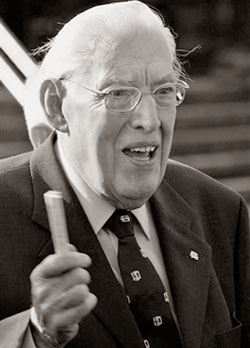|
observer |
|
|
|
|
|
OTHER LINKS |

|

|

|
Thought-provoking lessons from N. Ireland and Spain
In Northern Ireland, Democratic Unionist Party chief (DUP) Ian Paisley has strongly denied reports that the DUP agreed with British Prime Minister Tony Blair on a date to transfer policing and justice powers to the region's administrative mechanism in which the chief power contenders in Northern Ireland, the Protestant-dominated DUP and the Catholic-associated Sinn Fein, headed by Jerry Adams, have been attempting over the past few years to share power harmoniously. The fitful nature of the conflict-resolution process in Northern Ireland points to the daunting nature of the issues at the centre of the simmering rebellion. One such subject is policing and law and order maintenance in Northern Ireland. This has been a very hot bone of contention between the DUP and Sinn Fein. The DUP has been traditionally for a continuation of the Royal Ulster Constabulary (RUC), which has been in charge of law and order maintenance in the province and is very much a symbol of British authority and power in Northern Ireland. Sinn Fein, on the other hand, has been for disbanding the RUC, which it has been accusing of power abuse and human rights violations over the years in Northern Ireland and has been calling instead for what it considers is a less oppressive law and order enforcement mechanism which would be more sensitive to Catholic concerns. Thus, policing and law enforcement has proved a stumbling block in the Northern Ireland conflict containment effort. A more equitable law enforcement body in which both the Protestant and Catholic dominated groups could have balanced representation seems to be the answer to this conundrum. Policing and the administration of justice has always proved contentious in intra-state conflicts of this kind on account of the potential it has for abuse and misuse of power. Groups which have been exercising hegemonic power within states prefer to have monopoly control over law and order and policing powers, because the latter resources could be used to perpetuate the status quo. Rebellious groups, on the other hand, would seek to appropriate such powers because it would enable them to change or modify the status quo in their favour, for the key to substantial control of the State is the coercive capability that comes along with control over a state's armed services and police. Therefore, a prolonged tug-of-war between the Protestant and Catholic groups could be predicted, given the very knotty nature of these issues. However, continuous dialogue between the parties could yield to a mutually-acceptable power-sharing formula, as is happening in closer to home Nepal. Meanwhile, in the Basque region of Spain, the years long conflict resolution effort is coming under fresh strain following renewed acts of terror, allegedly carried out by the rebellious ETA. A recent air port bombing which claimed a number of lives is one such act. This development has led to a polarization of political forces with the new Socialist government seeking the cooperation of the opposition to forge a broad front against terror. Spanish public opinion in the main seems to be favouring a no-talks - with-terrorists policy and even King Juan Carlos is on record as calling on the country to close ranks against terror. This could have the result of not only deeply dividing the polity but of also stifling the peace process, because not all sections of Spanish public opinion favour a no-talks policy with ETA. Generally speaking, it is advisable to keep the talks process going in conflicts of this kind, despite violence and terror because a complete breakdown of communication between the antagonists could lead to a congealing of internal divisions. This must be avoided at any cost if the conflict resolution effort is to move along. |

 Two of Europe's longest-running separatist insurgencies - the
Northern Ireland conflict and the often bloody revolt in Spain's Basque
region - are once again in the news with developments in both theatres
of contention showing a slowing down of their respective
conflict-resolution processes.
Two of Europe's longest-running separatist insurgencies - the
Northern Ireland conflict and the often bloody revolt in Spain's Basque
region - are once again in the news with developments in both theatres
of contention showing a slowing down of their respective
conflict-resolution processes. 









